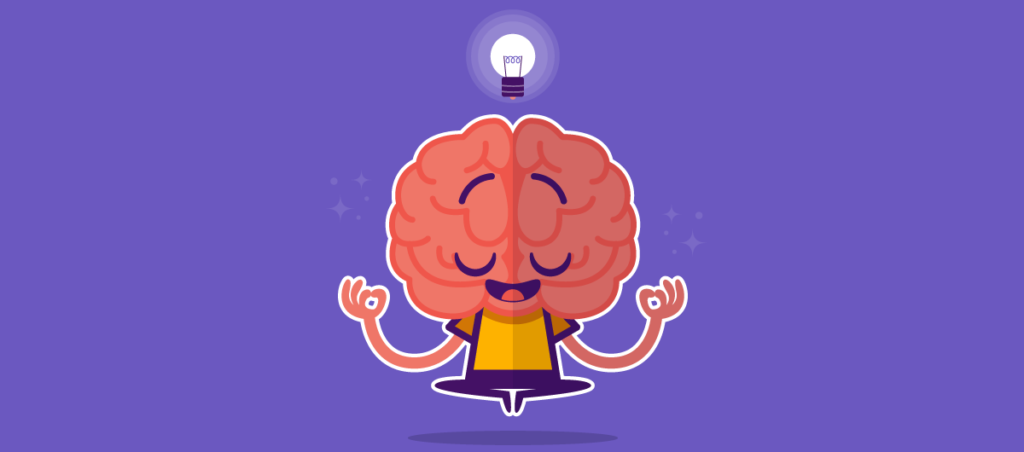If you’re looking to maximize your brain’s ability, there are many things you can do. There are a few ways to improve memory too, like eating certain foods and getting enough sleep. You could also try meditation or some cognitive behavioral therapy exercises, both of which have been shown to be effective at improving memory.
Contents
What Is Memory?
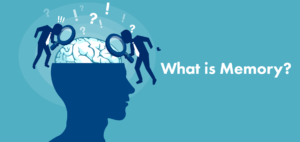
Most people have a basic understanding of what memory is – it’s the ability to remember things. But what is actually going on in your brain when you remember something?
To start with, memory is not one thing, but rather it’s made up of different types of memories. There’s short-term memory, which is the memory you use to remember things for a short period of time – typically just a few minutes. Then there’s long-term memory, which is the memory you use to remember things for longer periods of time – weeks, months, or even years.
Both short-term and long-term memories are stored in different parts of your brain. Short-term memories are stored in the hippocampus, while long-term memories are stored in different parts of the brain, depending on what type of information they represent.
How Does It Work?
When you remember something, what’s actually happening is that the information is being accessed and used by your brain. For example, when you see someone’s face, the image of their face is stored in your brain. When you want to remember their face, you access that information and use it.
To do this, your brain relies on different types of memory. Short-term memory is used to remember things for a short period of time, while long-term memory is used to remember things for longer periods of time.
Both short-term and long-term memories are stored in different parts of your brain. Short-term memories are stored in the hippocampus, while long-term memories are stored in different parts of the brain, depending on what type of information they represent.
How to Improve Your Memory?

The human brain is an amazing thing, capable of feats we never imagined. But sometimes, we need a little help to achieve our goals. If you’re looking to improve your memory, there are plenty of things you can do to maximize your brainpower. You can start by eating the right foods and getting enough sleep. You could also try meditation or some cognitive behavioral therapy exercises, both of which have been shown to be effective at improving memory. Whatever route you choose, don’t give up – the human brain is one of the most powerful tools on Earth!
There are many things you can do to improve your memory, including:
- Practicing memory exercises
- Eating foods that are good for memory
- Getting enough sleep
- Meditating
Practicing Memory Exercises
There are a number of exercises you can do to improve your short-term memory. One of the most popular is called the “memory palace”. To do this exercise, you first need to come up with a list of things you want to remember. Then, you create a mental image for each item on the list.
For example, let’s say you need to remember the following items:
- car
- cat
- dog
- tree
- house
You could create a mental image of a car driving down a road, with a cat sitting on the dashboard. You could then create another image of a dog walking in front of a tree, with a house in the background. By using these images, you can remember the items on the list without having to actually say them out loud.
Eating foods that are Good for Memory

There are certain foods that are good for memory, including:
- Blueberries
- Oily fish
- Nuts
- Red wine
Blueberries are a good source of antioxidants, which help protect the brain from damage. Oily fish is high in omega-3 fatty acids, which are beneficial for the brain. Nuts are also high in omega-3 fatty acids, as well as antioxidants. And red wine contains resveratrol, which is also beneficial for the brain.
Getting Enough Sleep
It’s important to get enough sleep if you want to improve your memory. The reason for this is that during sleep, your brain consolidates memories – it “downloads” information from short-term memory to long-term memory. This process is crucial for learning and remembering new information.
Meditating
There is evidence that meditation can help improve memory, including:
- Reducing stress levels, which can interfere with memory function.
- Improving focus and concentration, which can help you learn and remember new information.
- Reducing anxiety, which can also interfere with memory function.
Cognitive Behavioral Therapy Exercises
Cognitive-behavioral therapy (CBT) is a type of therapy that can be helpful for improving memory. CBT helps you identify and change the thoughts and behaviors that interfere with your ability to remember things. This type of therapy can be especially helpful for people who have anxiety or depression, which can interfere with memory function.
So as you can see, there are a number of things you can do to improve your memory. By following some or all of these tips, you can help ensure that your memories are sharp and clear.
Give Your Brain A Workout
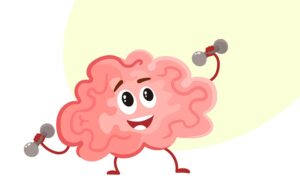
The human brain is an amazing thing, capable of feats we never imagined. But sometimes, we need a little help to achieve our goals. If you’re looking to improve your memory, there are plenty of things you can do to maximize your brainpower. One of the best ways to do this is by giving your brain a workout.
Just like your body, your brain needs exercise to stay healthy. By doing activities that challenge your mind, you can improve your memory and keep your brain in top condition. Some of the best ways to do this are by:
- Playing puzzles or games that require strategy and skill
- Taking on new challenges or learning new skills
- Doing tasks that are unfamiliar or that require problem-solving
- Engaging in mentally stimulating activities such as reading, writing, or playing music
If you want to keep your mind sharp and your memory functioning at its best, make sure to give your brain a workout on a regular basis. You’ll be amazed at the results!
So as you can see, there are a number of things you can do to improve your memory. By following some or all of these tips, you can help ensure that your memories are sharp and clear. Give your brain a workout today – you won’t regret it!
Don’t Forget To Laugh
When it comes to improving your memory, one of the best things you can do is laugh. Laughter is not only good for your mental health, but it’s also good for your memory.
Laughing helps improve memory in a few ways.
- First, laughter reduces stress levels, which can interfere with memory function.
- Second, laughter increases blood flow to the brain, which helps keep the brain healthy and functioning properly.
- And third, laughter is a form of mental stimulation, which helps keep the mind active and sharp.
So if you want to improve your memory, make sure to laugh – it’s good for both your body and your mind!
So as you can see, there are a number of things you can do to improve your memory. By following some or all of these tips, you can help ensure that your memories are sharp and clear. Give your brain a workout today – you won’t regret it!
Keep Stress In Check

One of the best ways to improve your memory is to keep your stress levels in check. When you’re stressed, it can be difficult to focus and concentrate on anything. This can lead to memory problems and difficulty learning new information.
There are a number of things you can do to reduce stress and keep it under control. Some of the best techniques include:
- Meditation
- Yoga
- Breathing exercises
- Exercise
- Relaxation techniques
If you want to have a sharp memory, it’s important to keep your stress levels in check. Try out some of these techniques and see which ones work best for you. You’ll be amazed at how much better you feel – and how much better your memory is – when you’re not stressed out all the time.
So as you can see, there are a number of things you can do to improve your memory. By following some or all of these tips, you can help ensure that your memories are sharp and clear. Give your brain a workout today – you won’t regret it!
Recognize And Treat Health Problems
Many health problems can impact memory, including Alzheimer’s disease, dementia, and head injuries. If you are experiencing any problems with your memory, it’s important to see a doctor and get checked out. There may be a treatable health condition causing the memory issues.
Once any health problems are ruled out or treated, you can then focus on improving your memory through other methods. You may need to work with a therapist or coach to help you regain lost memories, or you may need to use some of the tips listed in this article.
Heart diseases: Conditions that affect the heart, such as high blood pressure, coronary artery disease, and congestive heart failure can also lead to memory problems. If you have any of these conditions, it’s important to get them treated and under control.
Diabetes: Diabetes can also impact memory, often causing problems with focus, concentration, and short-term memory. If you have diabetes, it’s important to keep your blood sugar levels under control in order to minimize the impact on your memory.
Depression: Depression is a common problem that can also impact memory. People who are depressed often have trouble concentrating and focusing on tasks, which can lead to memory problems. If you think you may be depressed, it’s important to seek help from a doctor or therapist.
Use Mnemonic Device
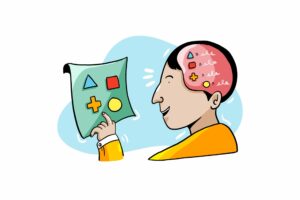
A mnemonic device is a memory tool that helps you remember information. There are a number of different types of mnemonic devices, and each one is designed to help you remember something in a specific way.
Some common mnemonic devices include:
• Acronyms: An acronym is a word or phrase formed from the first letter of each word in a phrase. For example, “ROYGBIV” is an acronym for the colors of the rainbow: red, orange, yellow, green, blue, indigo, violet.
• Rhymes: A rhyme is a phrase or sentence that rhymes. For example, “In fourteen hundred ninety-two Columbus sailed the ocean blue.”
• Chunking: Chunking is a technique that helps you break down information into smaller, more manageable pieces. For example, you can break down a phone number into three chunks: the area code, the first three digits, and the last four digits.
• Pictures: A picture is worth a thousand words. If you can create a mental picture of the information you’re trying to remember, you’ll be more likely to remember it.
There are many different types of mnemonic devices, and you may need to try a few until you find one that works best for you. Once you find a device that helps you remember information, use it regularly to help improve your memory.
Can You Improve Memory At Any Age?
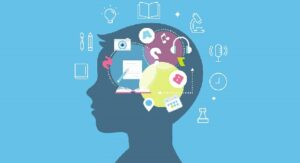
Yes, you can improve memory at any age. In fact, there are a number of things you can do to help keep your memory sharp. Each of these techniques can help improve memory, regardless of your age. If you’re looking for ways to keep your mind sharp, try out some of these techniques and see how they work for you. You may be surprised at the difference they make!
There are many different techniques you can use to improve memory, and each one may work better for certain people. If you’re looking for ways to improve your memory, it’s important to experiment until you find a technique or combination of techniques that works best for you.
Conclusion
Improving your memory doesn’t have to be difficult. In fact, there are plenty of things you can do to help boost your recall and make retaining information easier. From increasing your intake of Omega-3 fatty acids to practicing meditation or mindfulness, there are a variety of ways you can improve your memory. What works best for you may depend on your own personal preferences and daily routine. Try out several different techniques and strategies until you find the ones that work best for you – then stick with them! By regularly engaging in activities that improve memory, you’ll be able to keep your mind sharp and focused no matter what life throws your way.
A Word From Therapy Mantra
Your mental health — Your psychological, emotional, and social well-being — has an impact on every aspect of your life. Positive mental health essentially allows you to effectively deal with life’s everyday challenges.
At Therapy Mantra, we have a team of therapists who provide affordable online therapy to assist you with issues such as depression, anxiety, stress, workplace Issues, addiction, relationship, OCD, LGBTQ, and PTSD. You can book a free therapy or download our free Android or iOS app.
